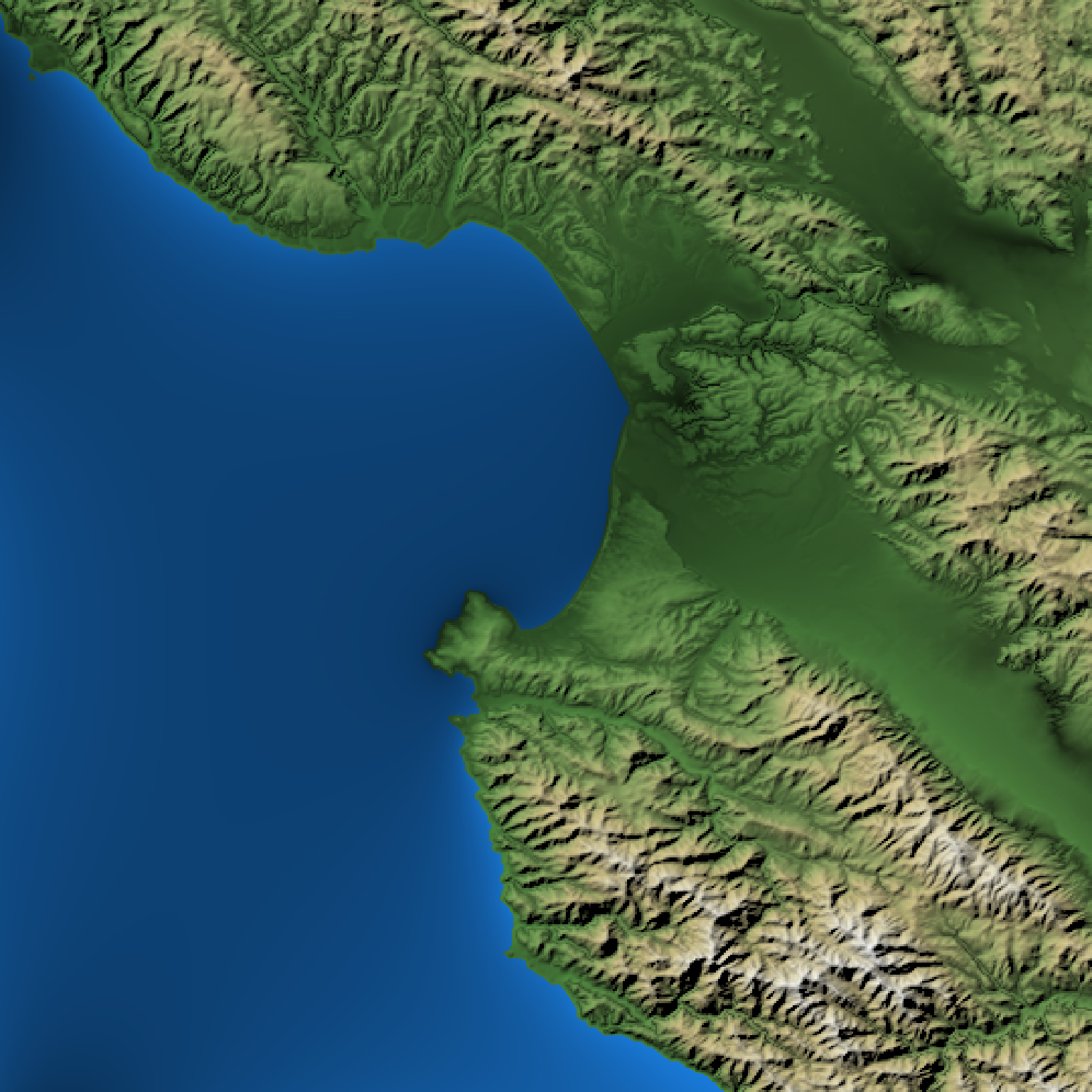Calculates a shadow for each point on the surface using the method described by Leland Brown in "Texture Shading: A New Technique for Depicting Terrain Relief."
texture_shade(
heightmap,
detail = 0.5,
contrast = 1,
brightness = 0,
transform = TRUE,
dx = 1,
dy = 1,
pad = 50
)Arguments
- heightmap
A two-dimensional matrix, where each entry in the matrix is the elevation at that point.
- detail
Default
0.5. Amount of detail in texture shading algorithm.0is the least detail, while1is the most.- contrast
Default
1,standard brightness. Amount of contrast in the texture shading. This transforms the resulting darkness using the formulatanh(input * contrast + brightness).- brightness
Default
0, standard brightness. Higher values will brighten the texture hillshade, while lower values will darken it.- transform
Default
TRUE. Whether to apply thetanh(input * contrast + brightness)transformation. This transforms the resulting darkness using the formulatanh(input * contrast + brightness).- dx
Default
1. The distance between each row of data (compared to the height axis).- dy
Default
1. The distance between each column of data (compared to the height axis).- pad
Default
50. The amount to pad the heightmap so edge effects don't appear from the fourier transform. Only increase this if you encounter boundary effects.
Value
2D matrix of hillshade values.
Examples
#Create a direct mapping of elevation to color:
if(run_documentation()) {
#Plut using default values
montereybay |>
texture_shade() |>
plot_map()
}
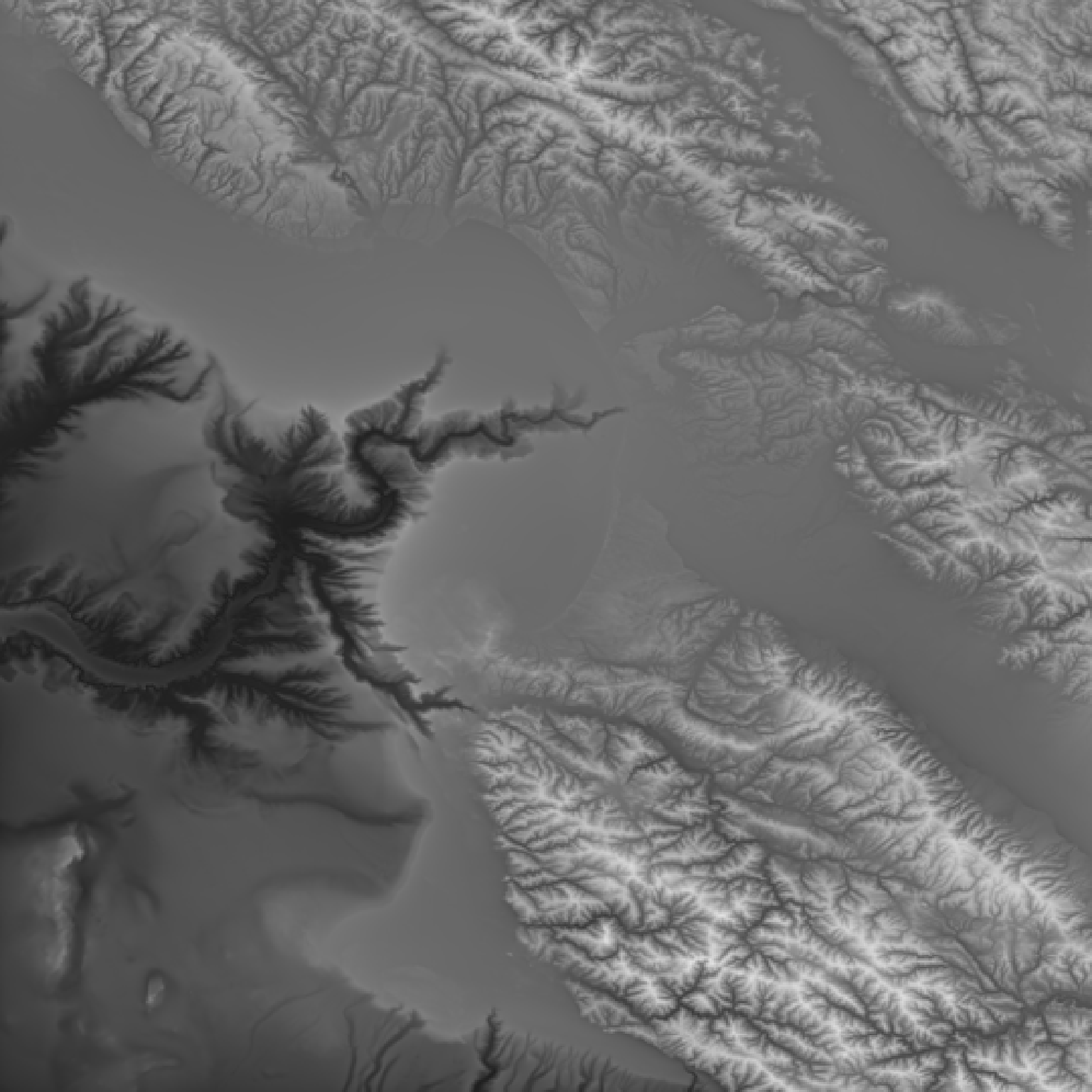 if(run_documentation()) {
#Increase the level of detail
montereybay |>
texture_shade(detail=1) |>
plot_map()
}
if(run_documentation()) {
#Increase the level of detail
montereybay |>
texture_shade(detail=1) |>
plot_map()
}
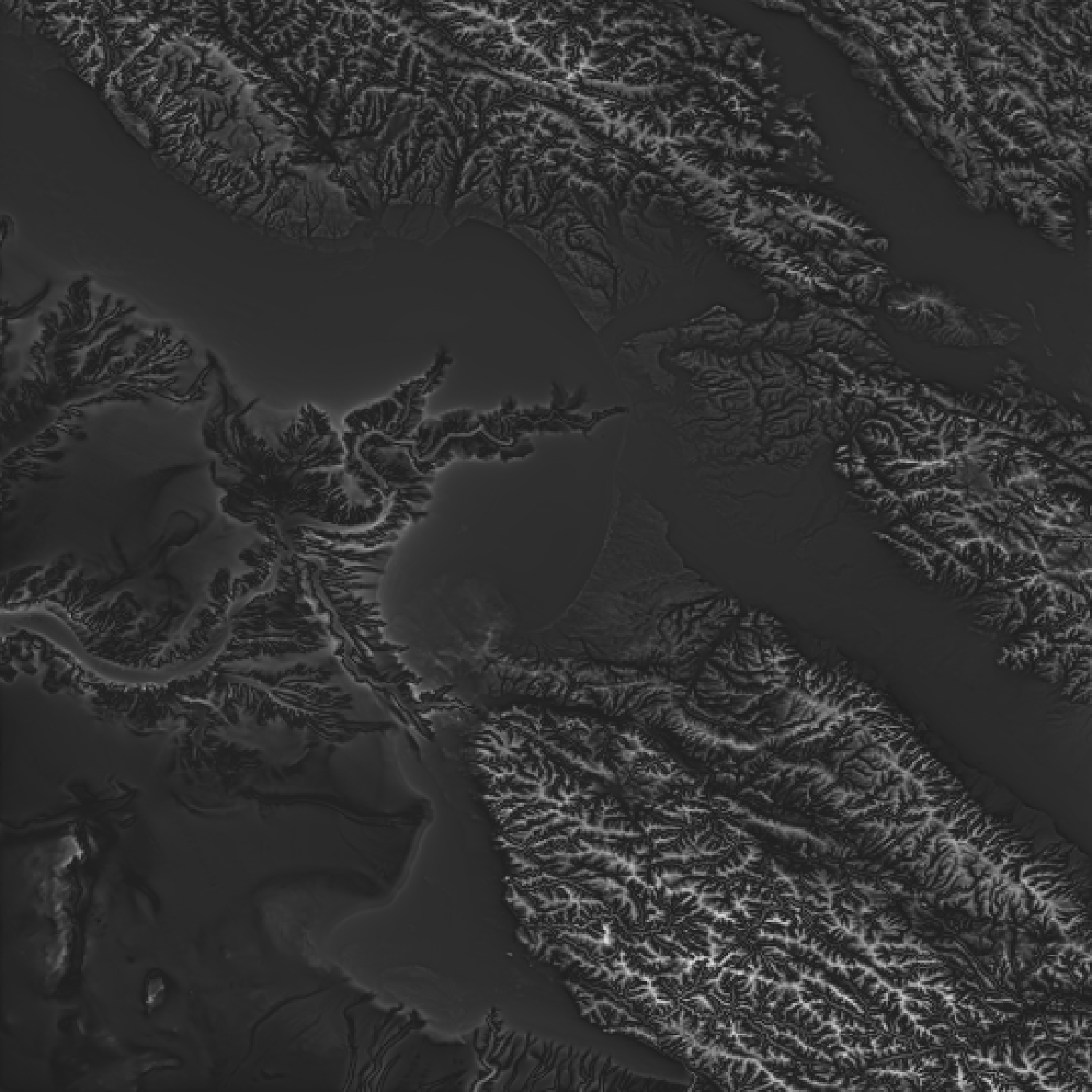 if(run_documentation()) {
#Decrease the level of detail
montereybay |>
texture_shade(detail=0) |>
plot_map()
}
if(run_documentation()) {
#Decrease the level of detail
montereybay |>
texture_shade(detail=0) |>
plot_map()
}
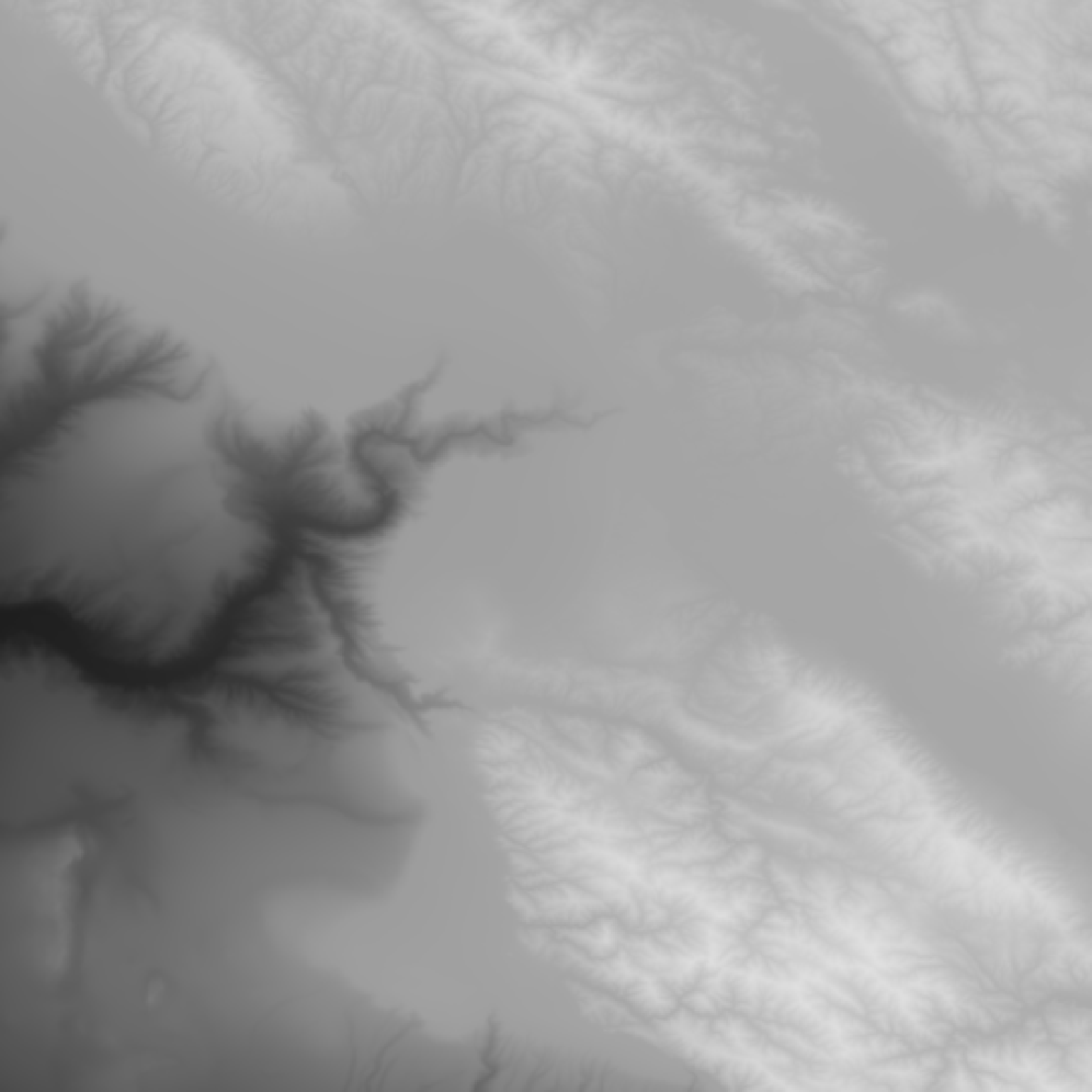 if(run_documentation()) {
#Increase the level of contrast
montereybay |>
texture_shade(contrast=3) |>
plot_map()
}
if(run_documentation()) {
#Increase the level of contrast
montereybay |>
texture_shade(contrast=3) |>
plot_map()
}
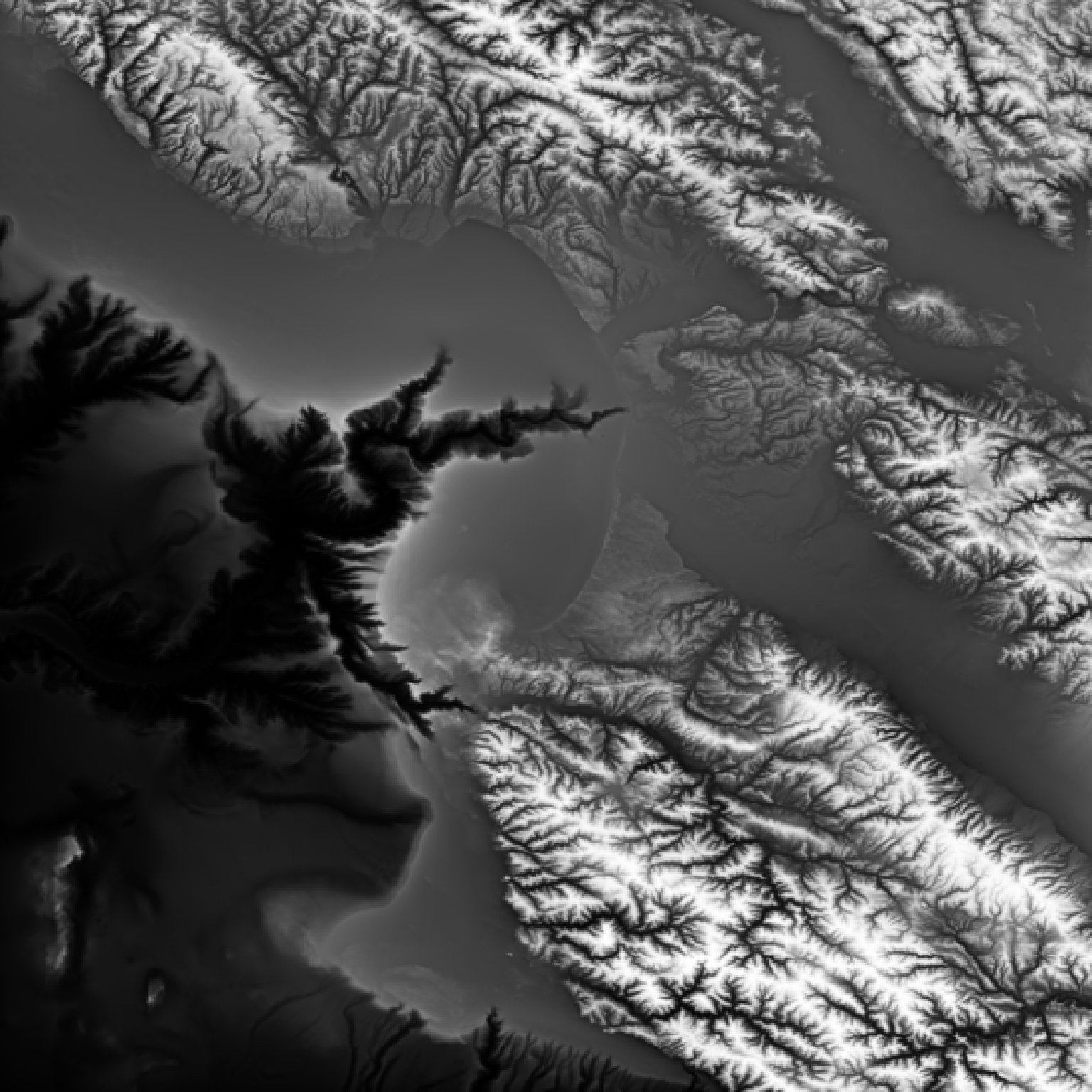 if(run_documentation()) {
#Increase the brightness for this level of contrast
montereybay |>
texture_shade(contrast=5, brightness = 2) |>
plot_map()
}
if(run_documentation()) {
#Increase the brightness for this level of contrast
montereybay |>
texture_shade(contrast=5, brightness = 2) |>
plot_map()
}
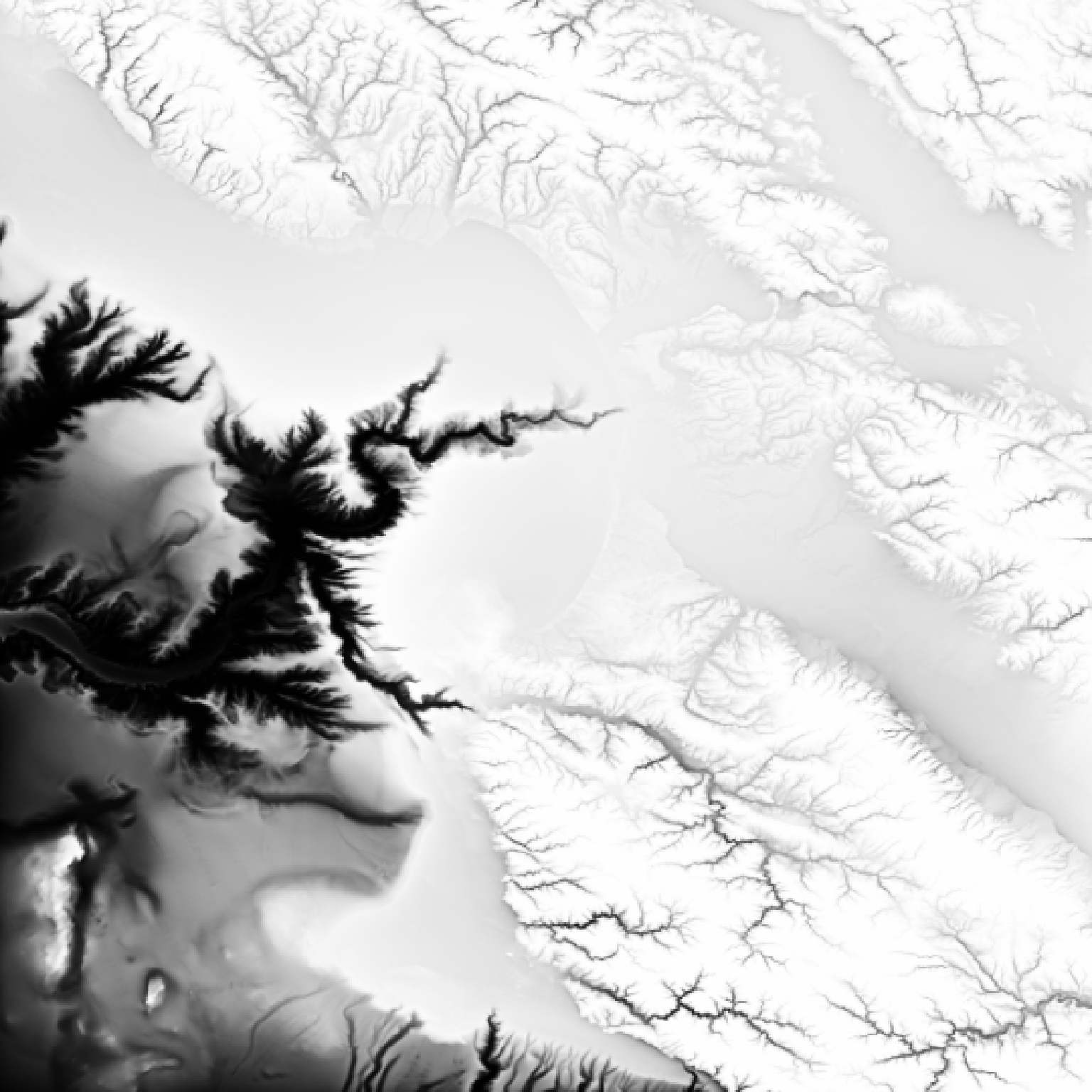 #Add a texture_shade() layer into a map
montbay = montereybay
montbay[montbay < 0] = 0
if(run_documentation()) {
montbay |>
height_shade() |>
add_water(detect_water(montbay), color="dodgerblue") |>
add_shadow(texture_shade(montbay, detail=1/6, contrast = 4,
brightness = 3),0.1) |>
add_shadow(lamb_shade(montbay,zscale=50),0) |>
plot_map()
}
#Add a texture_shade() layer into a map
montbay = montereybay
montbay[montbay < 0] = 0
if(run_documentation()) {
montbay |>
height_shade() |>
add_water(detect_water(montbay), color="dodgerblue") |>
add_shadow(texture_shade(montbay, detail=1/6, contrast = 4,
brightness = 3),0.1) |>
add_shadow(lamb_shade(montbay,zscale=50),0) |>
plot_map()
}
